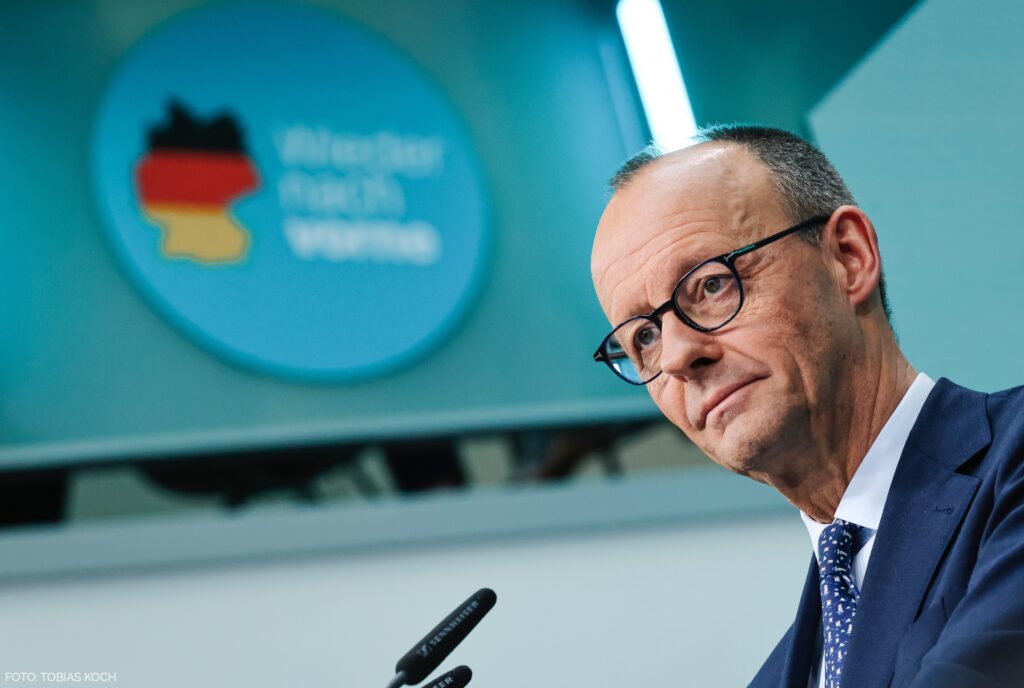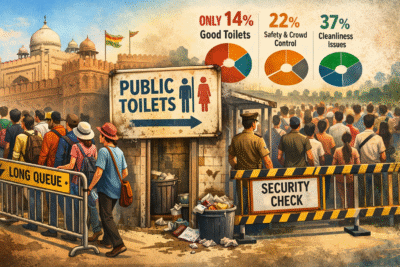
Friedrich Merz will be Germany's next chancellor
Friedrich Merz has emerged victorious for the role of Germany’s chancellor in the snap election held on Sunday. This brings him to the helm of affairs of the biggest economy of Europe when the continent’s strongest ally is turning inward under the leadership of maverick Donald Trump, who sees the world as a real estate spanned before him to be developed into saleable property.
Acknowledging his victory in the election, Merz wrote on X (formerly known as Twitter), “I want to thank the 14 million voters of the Union for their trust. We received 3 million more votes than in the last federal election. With the election result of 28.6 percent, we clearly have the mandate to govern and we accept this.”
„Ich will den 14 Millionen Wählerinnen und Wählern der Union Danke sagen für ihr Vertrauen. Wir haben 3 Millionen Stimmen mehr bekommen als bei der letzten Bundestagswahl. Mit dem Wahlergebnis von 28,6 Prozent haben wir ganz eindeutig den Regierungsauftrag und diesen nehmen wir… pic.twitter.com/63ARakmPvu
— Friedrich Merz (@_FriedrichMerz) February 24, 2025
The challenges that Friedrich Merz faces as Germany’s potential next chancellor are indeed monumental and will have far-reaching consequences for Europe. Here’s a closer look at each of them:
- Transatlantic Relations and Resetting Global Order: Merz will need to navigate the delicate balance between maintaining strong ties with both the United States and Europe. The Trump administration’s approach to de-hyphenating the US from Europe has made this task more complex. Merz must repair and strengthen these alliances, especially in light of the evolving global order, where Germany’s geopolitical influence is at stake. How he handles issues like trade, defense, and diplomacy will shape Europe’s role on the global stage, especially as the US recalibrates its international relations under a potentially new administration.
- Germany’s Sluggish Economy: As Europe’s economic powerhouse, Germany’s economic health has broader implications for the entire continent. A sluggish economy, rising cost of living, and increasing migration pressure present tough challenges for Merz. He will need to implement reforms that stimulate growth while also balancing the needs of the business community, the workforce, and the public. His policies on fiscal spending, taxation, and investment in key sectors will be crucial in maintaining Germany’s leadership in the EU.
- The Ukraine War and European Security: The ongoing war in Ukraine poses a significant threat to European security. Merz’s response to this crisis will be pivotal not only for Germany but for Europe’s collective defense strategy. How he navigates the balance between supporting Ukraine, maintaining relations with NATO, and managing Russia will be watched closely. The longer the conflict drags on, the more important it will become for Merz to formulate strategies for both defense and diplomacy that ensure the stability of Europe.
- European Unity in the Face of Trump and Putin: The European Union faces increasing internal and external threats to its unity, especially with leaders like Trump and Putin challenging its cohesion. Merz must work to ensure Germany’s leadership role in fostering EU unity, especially as populist and nationalist movements gain traction in many European countries. His approach to European defense, the prospect of an independent European army, and managing tensions within the EU will be key to preserving Europe’s collective strength. Merz will have to work with other EU leaders to maintain a united front on major geopolitical issues.
- The Migration Question and Domestic Policy: Migration continues to be one of the most contentious issues in Germany’s domestic and foreign policy. The rise of the AfD and the growing debate on how to handle migration will require Merz to adopt policies that balance humanitarian concerns with the political and economic realities of integrating migrants. His ability to strike a balance between maintaining Germany’s reputation as a welcoming country while addressing domestic concerns about social stability and integration will define his leadership.
Each of these challenges requires careful consideration of both domestic and international factors. Merz will need to navigate complex political terrain, adapt to a rapidly changing world order, and provide strategic leadership to ensure Germany’s future role in Europe and the world.



